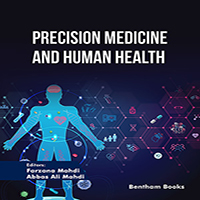Abstract
Background: Hashimoto's thyroiditis (HT) is an autoimmune disease characterized by the destruction of thyroid cells through immune processes involving T helper (Th)1 cytokines. This clinical trial investigates the impact of vitamin D supplementation on serum cytokine levels and gene expression in CD4+ T cells from HT patients, aiming to understand its effects on Th-1, Th-2, Th-17, and regulatory T (Treg) cell-associated factors.
Methods: Female patients were randomly assigned in a double-blind design to either a vitamin D-supplemented group, which received cholecalciferol (1, 25(OH)2D3) at a dose of 50,000 IU, or the placebo group, which received a weekly placebo for a duration of three months. Serum cytokine levels were assessed using enzyme-linked immunosorbent assay (ELISA), while genes’ expression levels were measured using real-time PCR.
Results: Serum 25-hydroxyvitamin D and levels exhibited a significant increase following vitamin D supplementation, in comparison to the placebo group. Additionally, the vitamin D supplementation resulted in a significant elevation of serum calcium (Ca) levels compared to baseline. In the vitamin D group, there was a significant decrease in both serum levels and expression of the interleukin (IL)-17 gene when compared to baseline, although no statistical difference was observed between the placebo and vitamin D groups. The gene expression of transforming growth factor-beta (TGFβ) was significantly increased in the vitamin D group compared to baseline, with no significant difference between the two study groups. Vitamin D treatment had no effect on serum levels of interferon-gamma (IFNϒ) and IL-4. While the gene expression of IL-4 in the vitamin D group did not exhibit a statistically significant increase, the level of GATA3 transcription factor increased significantly when compared to the placebo group. The expression of IFNϒ and transcription factors, T-bet, RORc, and forkhead box protein 3 (FOXP3) in genes did not show significant changes following vitamin D supplementation.
Conclusion: The findings suggest that vitamin D supplementation may hold potential benefits for autoimmune diseases, such as HT. However, further longitudinal clinical trials are necessary to gain a more comprehensive understanding of the specific effects of vitamin D on HT.
Keywords: Hashimoto’s thyroiditis, vitamin D, randomized clinical trial study, TGFβ, IFNϒ, thyroid gland.
 12
12



























